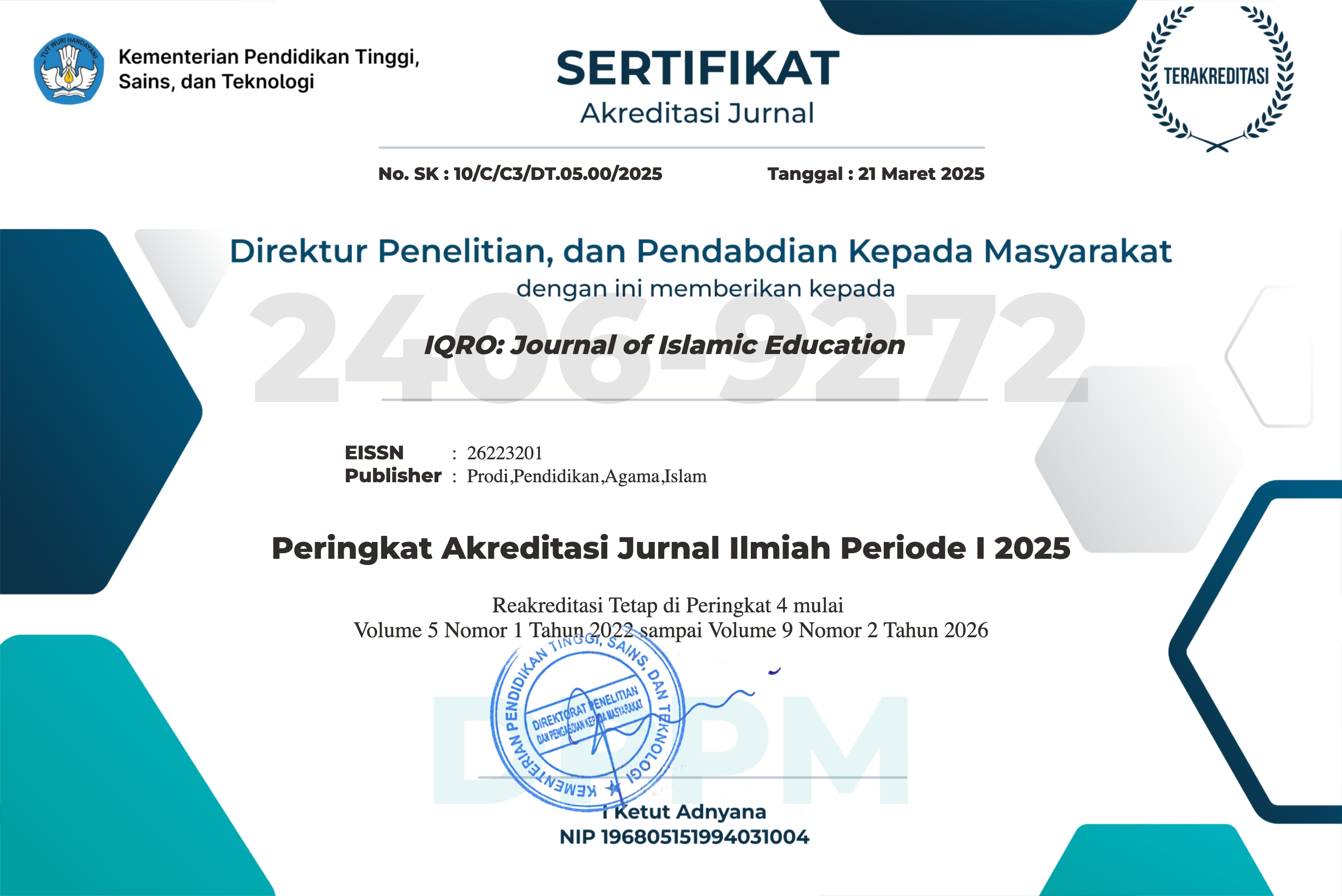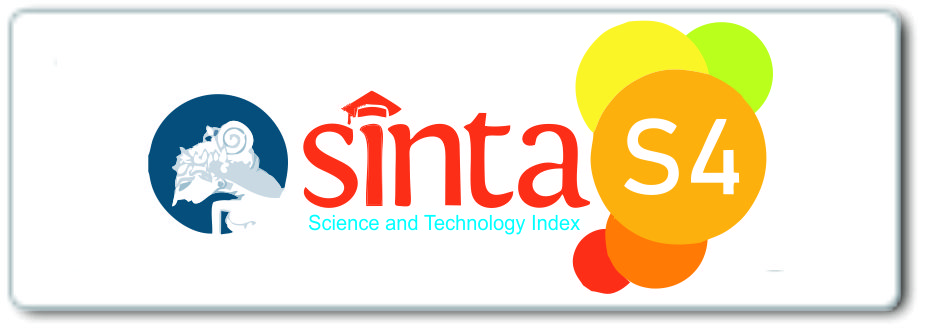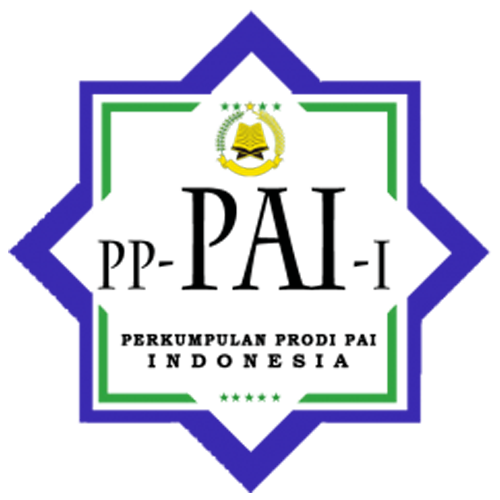Post-Method Pedagogy: Do not use any Teaching Procedure
DOI:
https://doi.org/10.24256/iqro.v7i1.5229Keywords:
post method, teaching, ELTAbstract
The post method is an excellent educational innovation, particularly in the learning process between teachers and students. Why is it like that? Because post-method pedagogies believe they assist teachers in developing strategies appropriate for their students' learning context. This is very beneficial for ELT because, as we know, many students in Indonesia are not interested in learning English. They think English is not important and challenging to learn and understand. The role of the educator in the classroom as a mediator is to ensure that students receive the best education possible. Post-method pedagogy centres language learning and teaching on the teacher and respects his or her beliefs, experiences, and knowledge. Lecturers should be valued because people are also the ones to blame.
In this paper, the researcher used a qualitative research design and the Library Research method. In the context of research, the term "library research" refers to the process of gleaning information and facts from a variety of library resources, such as reference books and periodicals, comparable findings of earlier studies, articles, notes, and countless magazines related to the problem that must be solved.
The teacher's role is to be actively involved in the learning process and implement the defined learning processes in order to facilitate consistent learning outcomes. Furthermore, the instructor can reflect on their teaching effectiveness and alignment with the current curriculum. The teacher has a pivotal role in determining the success of the learning process.
Keywords: post method, teaching. ELT
References
Akidatul Yusmalinda, Puji Astuti, (2020). English Teachers’ Methods in Teaching Reading Comprehension of Procedure Text. Universitas Negeri Semarang
Arikan, A. (2006). Post method Condition and Its Implications for English Language Teacher Education. Journal of Language and Linguistic Studies. 2 (1), 35-46.
Brown, H. Douglas. 2007. Principles of Language Learning and Teaching. New York: Pearson Education
Fajriah, F. (2017). Learning Journal: Improving Teaching Strategies Through Students’ Reflections. Sukma: Jurnal Pendidikan, 1(2), 301–327. https://doi.org/10.32533/01204.2017
Khany, R., & Darabi, R. (2014). ELT in Iran: Reflection of the Principles-based and Post-method Pedagogy in Language Teaching. Procedia - Social and Behavioral Sciences, 98, 908–916. https://doi.org/10.1016/j.sbspro.2014.03.499
Kumaravadivelu, B. (1994). The postmethod condition: (E)merging strategies for second/foreign language teaching. TESOL Quarterly, 28(1), 27-48.
Kumaravadivelu, B. (2001). Towards a postmethod pedagogy. TESOL Quarterly, 35(4), 537-560.http://dx.doi.org/10.2307/3588427.
Kumaravadivelu, B. (2003a). Beyond methods: Macrostrategies for language teaching. New Haven, CT: Yale University Press
Kumaravadivelu, B. (2006). Understanding Language Teaching: From Method to Postmethod. London: Lawrence Erlbaum Associates.
Parr-modrzejewska, A. (2020). Post-method principles at work : Evidence from lower primary integrated EFL education classroom in Poland. 8(3), 319–337. https://doi.org/10.30438/ksj.2020.8.3.5
Richards, J. C., & Rodgers, T. S. (2001). Approaches and methods in language teaching. Cambridge: Cambridge University Press
Ruhimat, T. (2010). Prosedur Pembelajaran. Universitas Pendidikan Indonesia, 1–30.
Sarwono, J. (2006). Metode Penelitian Kuantitatif dan Kualitatif :Graha Ilmu. Yogyakarta
Shifa, N. A., & Selatan, K. (2022). Teaching Method Used By English Teacher At Eighth and Ninth. 2, 1–11.
Wallace, M. J. (1991). Training Foreign Language Teachers: A Reflective Approach. Cambridge: Cambridge University Press.
Yamin, M. (2022). Blended Learning Model Pembelajaran Pasca Pandemi. Sustainable Jurnal Kajian Mutu Pendidikan, 5(2), 285-289.
Fakhrunnisaa, N. (2021). Efektivitas Perkuliahan Daring Pada Mahasiwa PGMI IAIN Palopo. Jurnal PTK dan Pendidikan, 7(2).






 This is an open access article under the
This is an open access article under the 